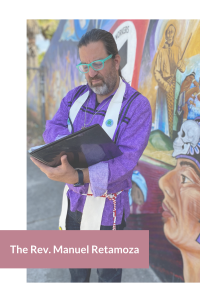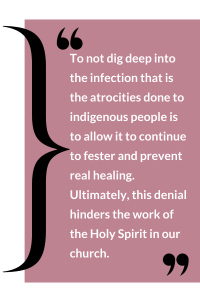John Wertz, Blacksburg, VA
Warm-up Question
Share a song that you really love and say why you love it.
Magnifying Lens
Chances are you are looking at these words on a screen or that you looked at them on a screen prior to printing them out. According to a study released by the JAMA Pediatrics in November 2021, screen time for teenagers has increased during the pandemic from 3.8 hours per day to 7.7 hours per day. The 7.7 hours per day is for recreation (gaming and videos) and social interaction (social media and texting). That does not include online schooling, which can represent another 5-7 hours per day.
With increased screen time, comes the potential for an increase in other problems. According to some studies of adolescents, an increase in screen time correlated with an increase in stress and worry, along with a decline in the ability to cope with stress and worry. In addition, large amounts of screen time can impact sleep patterns and an individual’s eye health. For example, a study of 120,000 children 6-8 in China indicated that myopia (nearsightedness) had increase at a rate in 2020 that was 3 times higher than in previous years.
Given the extraordinary number of screens in the world and the continued need to connect digitally because of the pandemic, it seems unlikely that levels of screen time will returning to pre-pandemic levels. So how should we respond? Dr. Michael Rich, director of the Digital Wellness Lab at Boston Children’s Hospital and associate professor of pediatrics at Harvard Medical School suggests “increasing non-screen time throughout the day. This could happen at the dinner table, while doing homework, and especially during sleeping hours.”
Some experts noted that there are simple steps to preserve the eyes, such as having good lighting at home and following the 20/20/20 rule when using electronic devices. That means taking a break every 20 minutes to look at an object at least 20 feet away for 20 consecutive seconds. While it will take years of study to determine the exact impact that increased screen time is having on our lives and our health, the initial studies certainly seem to indicate that managing our screen time more actively is an excellent idea.
Discussion Questions
- How has your screen time changed over the last two years?
- What steps have you taken or could you take to create a healthy balance between screen time and non-screen time?
Fourth Sunday of Advent
(Text links are to Oremus Bible Browser. Oremus Bible Browser is not affiliated with or supported by the Evangelical Lutheran Church in America. You can find the calendar of readings for Year C at Lectionary Readings.)
For lectionary humor and insight, check the weekly comic Agnus Day.
Gospel Reflection
If you have ever worn glasses or looked through a magnifying glass, you know that magnification often makes images clearer and easier to see. The image being magnified does not change, of course, but an outside magnifier makes a big difference in our ability to understand what we are seeing.
We live in a time when problems are increasingly magnified on all of our screens. For example, issues around COVID-19, racial injustice, and social inequity leave some people feeling hopeless and helpless. But what if we had an outside magnifier, so that instead of hatred, anger, sadness and despair, we see the peace, mercy, joy, and hope which God desperately wants for all God’s people?
When Mary, the mother of Jesus, first meets the angel, she struggles to see clearly what God is doing in Jesus. But by the time Mary reaches Elizabeth, Mary’s life is becoming a lens which magnifies God’s love and makes God’s vision for creation clearer and sharper.
In response to Elizabeth, Mary boldly proclaims, “The mighty one, has done great things for me . . ., his mercy is for those who fear him . . . . He has shown strength with his arm, he has scattered the proud in the thoughts of their hearts. He has brought down the powerful from their thrones and lifted up the lowly; he has filled the hungry with good things and sent the rich away empty” (Lk 1:49-53).
Through Mary’s eyes, we glimpse a promised future very different from Mary’s present and from the present many people know today.
Through Mary’s eyes, we discern the possibility that God works through the unexpected, the unlikely, and the lowly to bring extraordinary change and hope to the world.
Through Mary’s eyes, we see God’s vision for a kingdom where the lowly are lifted up, the hungry are fed, and all receive justice.
Her joyful, confident words help us see what she sees. Hearing Mary’s song doesn’t change our situation, but her faithful witness magnifies God’s love for the world and brings into focus God’s vision of a world where all people enjoy a life filled with peace, mercy, justice, and hope.
Discussion Questions
- Mary goes to see Elizabeth for support during a difficult time. How do you find support and help when you are worried or anxious?
- What does it look like for the lowly to be lifted up in today’s world?
- If you were singing a song about God’s presence in the world today, what style of music would it be? What would the title of the song be?
Activity Suggestions
Possibility 1: Mary’s song is often called the Magnificat. It has been interpreted and set to music countless times across the centuries. Search for ‘The Magnificat’ on YouTube or talk to the musician at your church and identify 3 or 4 different version of the song in different styles. Listen to each version and invite to group to share:
- Which version they enjoyed most?
- What made that version the most enjoyable?
Possibility 2: Download a set of extreme close-up pictures. Here’s an example from Reader’s Digest: https://www.rd.com/list/everyday-objects-close-up/. Show the pictures to the group and invite participants to try and guess what each picture represents. As a part of the discussion during the game, invite participants to consider how the magnification helps change the way one sees an object.
Closing Prayer
Open our eyes, O God, to see your love for the whole world. Inspire us to reflect and magnify your love through our words and our actions. Help us to know that you are with us in the ups and downs of life and to help to see the ways you call us to serve you in the world. Amen.



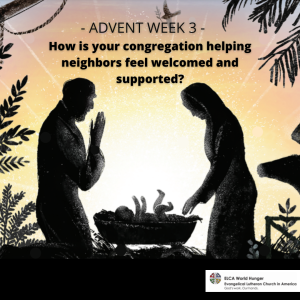

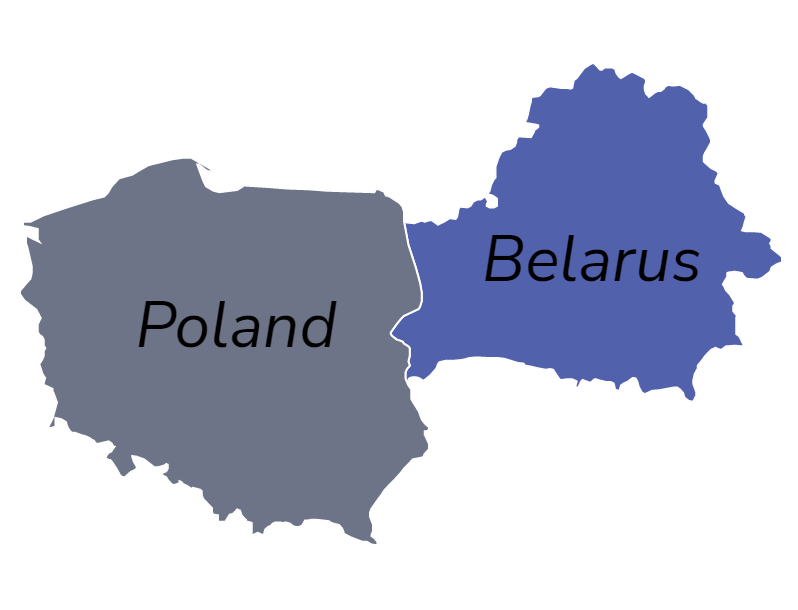
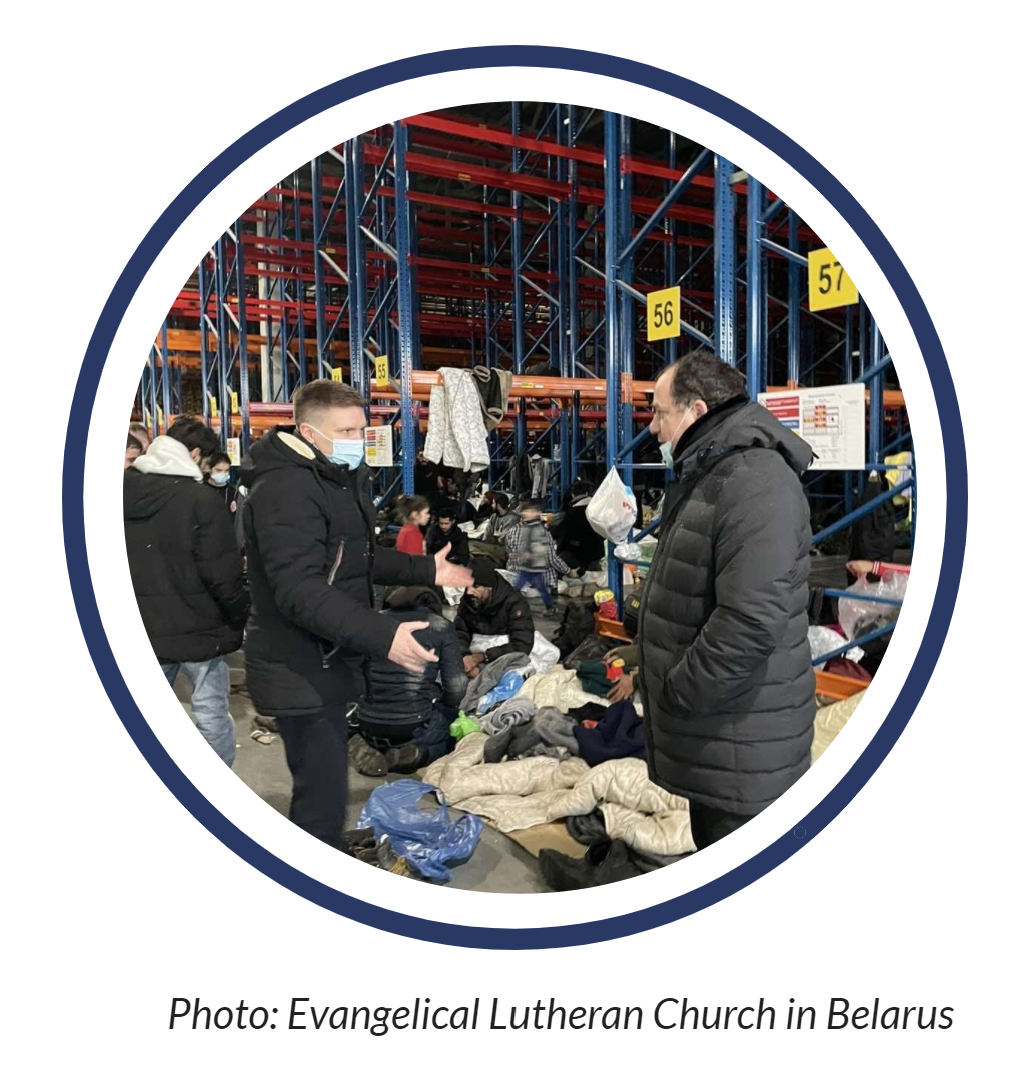


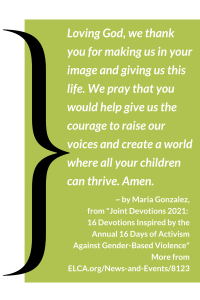
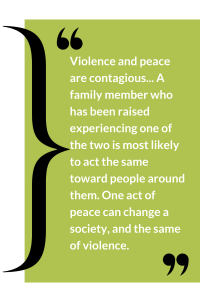
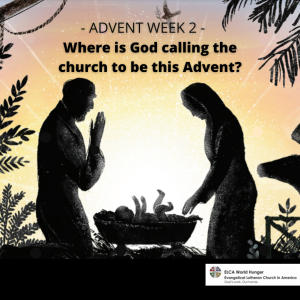

 All Creation Sings,
All Creation Sings,
